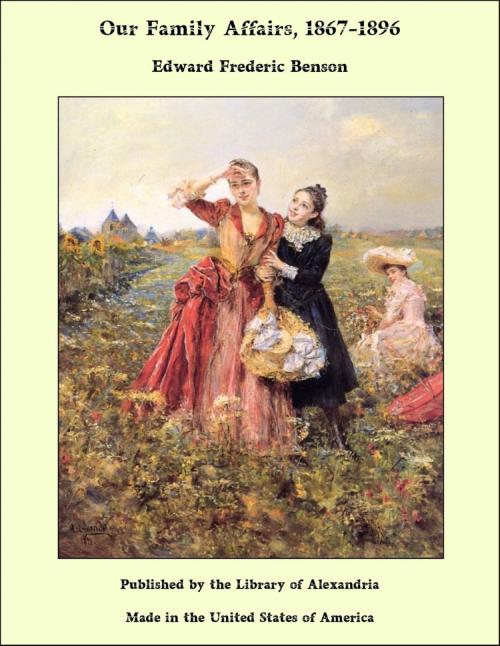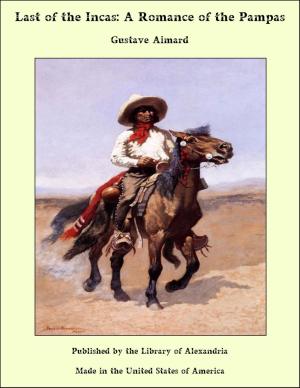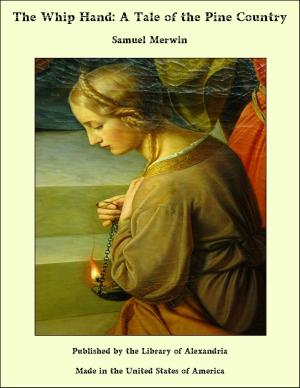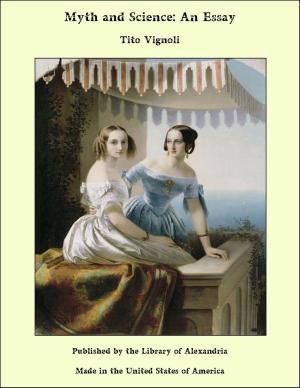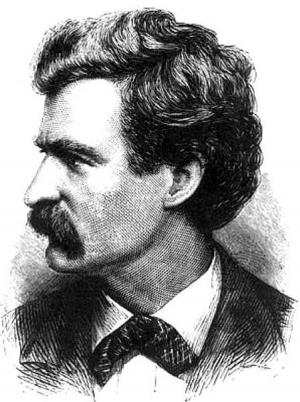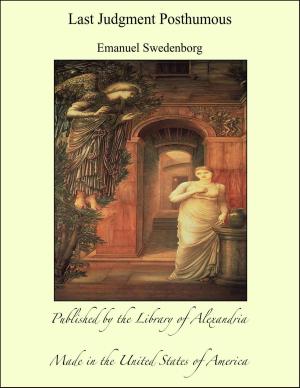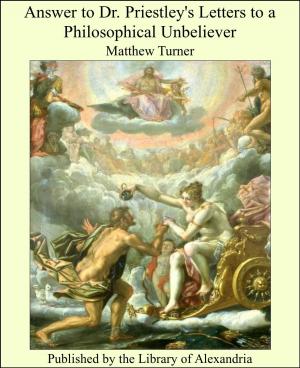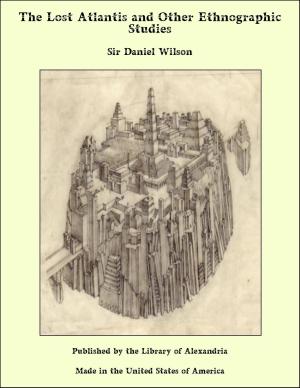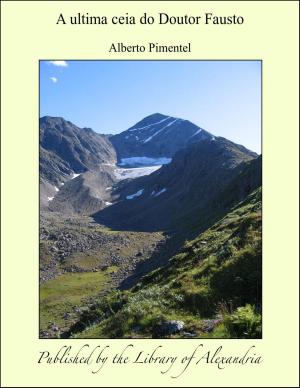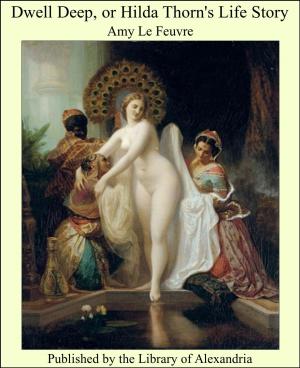Our Family Affairs, 1867-1896
Nonfiction, Religion & Spirituality, New Age, History, Fiction & Literature| Author: | Edward Frederic Benson | ISBN: | 9781465625434 |
| Publisher: | Library of Alexandria | Publication: | March 8, 2015 |
| Imprint: | Language: | English |
| Author: | Edward Frederic Benson |
| ISBN: | 9781465625434 |
| Publisher: | Library of Alexandria |
| Publication: | March 8, 2015 |
| Imprint: | |
| Language: | English |
MY father was headmaster of Wellington College, where and when I was born, but of him there, in spite of his extraordinarily forcible personality, I have no clear memory, though the first precise and definite recollection that I retain at all, heaving out of nothingness, was connected with him, for it certainly was he, who, standing by the table in the window of the dining-room with an open newspaper in his hand, told me never to forget this day on which the Franco-German war came to an end. Otherwise as regards him, somebody swept by in an academic cap and gown, a figure not at all awe-inspiring as he became to me very soon after, but simply a rather distinguished natural phenomenon to be regarded in the same light as rain or wall-paper or sunshine. Cudgel my memory as I may, I can evoke no other figure of him at Wellington, except as something shining and swift; an external object whirling along on an orbit as inconjecturable as those of the stars, and wholly uninteresting. He had a study on the left of the front door into the Master’s Lodge, where there was a big desk with a shiny circular cover. I know that I was taken in there to say good night to him, but the most remarkable thing there was the big desk with large handles, and perhaps a boy standing by it, mountainous in height and looking extremely polite and gentle. There was the same ceremony every evening: my father kissed me, put his hand on my head and said, “God bless you and make you a good boy always.” The most significant detail of that ritual was that my father’s face was rough, not smooth like the face of my mother and of Beth, and that there lingered round him or the room a smell of books and a smell of soap. A little later on than that there came a period when for half an hour before bedtime my two sisters and I (for the present the youngest) used to visit him in that same study while he drew entrancing pictures for us, each in turn. One of these I found only the other day: it represents a hill crowned with a castle and a church, in front of which is a small knight waving his sword in the direction of a terrifying dragon, horned and tailed, who is flying across the sky. Below in minute capitals runs a rhyming legend. Or I went to the College chapel, though not often, and by way of a treat, and there was the same figure in a surplice, in a stall on the right hand of the door of entrance. I believe I was there on the last Sunday of his Headmastership and that they sang a hymn which he wrote.
MY father was headmaster of Wellington College, where and when I was born, but of him there, in spite of his extraordinarily forcible personality, I have no clear memory, though the first precise and definite recollection that I retain at all, heaving out of nothingness, was connected with him, for it certainly was he, who, standing by the table in the window of the dining-room with an open newspaper in his hand, told me never to forget this day on which the Franco-German war came to an end. Otherwise as regards him, somebody swept by in an academic cap and gown, a figure not at all awe-inspiring as he became to me very soon after, but simply a rather distinguished natural phenomenon to be regarded in the same light as rain or wall-paper or sunshine. Cudgel my memory as I may, I can evoke no other figure of him at Wellington, except as something shining and swift; an external object whirling along on an orbit as inconjecturable as those of the stars, and wholly uninteresting. He had a study on the left of the front door into the Master’s Lodge, where there was a big desk with a shiny circular cover. I know that I was taken in there to say good night to him, but the most remarkable thing there was the big desk with large handles, and perhaps a boy standing by it, mountainous in height and looking extremely polite and gentle. There was the same ceremony every evening: my father kissed me, put his hand on my head and said, “God bless you and make you a good boy always.” The most significant detail of that ritual was that my father’s face was rough, not smooth like the face of my mother and of Beth, and that there lingered round him or the room a smell of books and a smell of soap. A little later on than that there came a period when for half an hour before bedtime my two sisters and I (for the present the youngest) used to visit him in that same study while he drew entrancing pictures for us, each in turn. One of these I found only the other day: it represents a hill crowned with a castle and a church, in front of which is a small knight waving his sword in the direction of a terrifying dragon, horned and tailed, who is flying across the sky. Below in minute capitals runs a rhyming legend. Or I went to the College chapel, though not often, and by way of a treat, and there was the same figure in a surplice, in a stall on the right hand of the door of entrance. I believe I was there on the last Sunday of his Headmastership and that they sang a hymn which he wrote.
